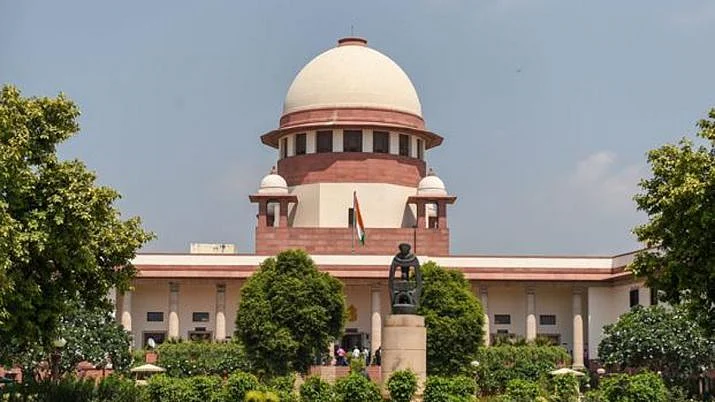Plea by journalists to strike off ‘vague, unconstitutional’ sedition law to be heard by SC on July 27
Petitioners pointed out while India calls itself a 'democracy', the offence of sedition has been condemned as undemocratic, undesirable and unnecessary throughout the democratic world

The Supreme Court on Monday adjourned to July 27 the hearing of a challenge to the constitutionality of the offence of sedition under Section 124A of the Indian Penal Code.
Attorney General for India KK Venugopal, to whom the bench had issued notice on the petition on April 30, and Solicitor General Tushar Mehta, who was appearing for the Union of India, requested for two weeks’ time to file their responses.
Granting the request, the bench directed that the affidavits be filed within two weeks, Live Law reported.
A bench comprising Justices UU Lalit and Ajay Rastogi was hearing a writ petition filed by two journalists, hailing from Manipur and Chhattisgarh, challenging the constitutionality of the offence of sedition.
Few intervention applications have also been filed in the case.
The main writ petition, filed by the petitioner journalists Kishorechandra Wangkhemcha and Kanhaiya Lal Shukla, argues that the Section infringes the fundamental right under Article 19(1)(a) of the Constitution
of India which guarantees that "all citizens shall have the right to freedom of speech and expression.
While citing the Supreme Court's decision to uphold the validity of the law in 1962 in the case of Kedar Nath Singh v. State of Bihar, the Petitioner has argued that the court may have been correct in its finding nearly sixty years ago, but the law no longer passes constitutional muster today.
The petitioners have pointed out three circumstances to be considered with regards to the law of sedition:
India has obligations under international law, as it is bound by the International Covenant on Civil and Political Rights that protects the freedom of expression as a right of all individuals Section 124-A is a restriction of freedom of expression.
There is frequent phenomenon of misuse, misapplication and abuse of Section 124-A since 1962. The abuse of a law, in itself, may not bear on the validity of the law but clearly points to the vagueness and uncertainty of the current law.
The sections of sedition have been repealed in comparative post-colonial democratic jurisdictions around the world. While India calls itself a 'democracy', throughout the democratic world, the offence of sedition has been condemned as undemocratic, undesirable and unnecessary.
The petitioners have also argued that the vagueness of Section 124-A exerts an unacceptable chilling effect on the democratic freedoms of
individuals who cannot enjoy their legitimate democratic rights and freedoms for fear of life imprisonment.
Follow us on: Facebook, Twitter, Google News, Instagram
Join our official telegram channel (@nationalherald) and stay updated with the latest headlines